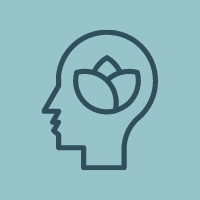Frequently Asked Questions
 Community Well-BEing
Community Well-BEing
I know what I want to support and/or address in my community. How do I find collaborative partners?
I have found others in our community interested in supporting well-being, how do we get started?
A group of us have had a few meetings. How do we identify next steps?
The North Ottawa Wellness Foundation has shared their story of how this coalition of community leaders came together to focus on community well-being. Their helpful Getting Started Guide and FAQs offers a peek at one community’s journey to facilitate and support sustainable well-being.
 Organizational Well-BEing
Organizational Well-BEing
I’m not sure anyone in my organization has well-being on their radar. How do I begin the conversation?
Identify your why – why is this important to you? Why do you think it is important to approach and/or address as an organization? How are you leaning into well-being in your own life? Are there changes you have experienced that might inspire others? Get clear on what you think should be discussed and what impact you foresee for the organization.
I have a group interested in increased well-being my organization. What next?
A group of us have had a few meetings. How do we gain more traction?
Identify the formal and informal leaders in your organization. Invite them to join the conversation, engage them in a few strategies that have resonated with others already in dialogue. The benefits of addressing the four areas of well-being, once realized in one’s own life, inspire further action. Need more inspiration? This article from Harvard Business Review addresses the cost-benefit of well employees.
 Individual Well-BEing
Individual Well-BEing
I know I need to take better care of myself, where do I begin?
I know I need to change a habit or two, but it is difficult. Are there any supports for changing old habits?
When is the best time to meditate?
Morning and evening coincide with our body’s quieter rhythms. Our body knows how to be still; we just have to give it the opportunity. By establishing a daily morning and evening practice, you will begin and end your day with an experience of silence and rejuvenation that will benefit every aspect of your life.
How long do I need to meditate?
To receive the maximum benefits from your meditation practice, I recommend meditating thirty minutes, twice daily. If you don’t have a full thirty minutes, I encourage you to meditate for as long as you have time. I make several suggestions in my courses how to integrate meditation into your daily routine.
What if I find that I am unable to clear my mind of thoughts when I meditate?
It’s perfectly okay to have thoughts during meditation. In fact, thoughts are a natural part of the process. They are a sign that stress is being released. The mantra itself is just another thought, even though it has no meaning. In meditation we think the mantra and when we become aware that we have drifted off to thoughts, we gently bring our attention back to the mantra without judgment.
We do not struggle against thoughts. We do not try to shut them out. They are part of the process. We just flow back and forth from the mantra to thoughts, to the mantra and back to thoughts. Eventually, we get to very refined levels of thought and we slip beyond the mantra, beyond thoughts, into the gap—to the level of the soul and spirit.
What is the difference between meditation and spending time in silence?
Meditation is a reliable means of contacting the silence of our inner self. Practicing silence can mean almost anything depending upon the state of consciousness of the person in question. For some rare individuals it can be simply closing the eyes and connecting to silent awareness beyond thought and mind. For most people it can be closing the eyes and thinking about silence in the midst of thinking other thoughts. But thoughts of silence are still mental activity and not actual silence or stillness. Without a traditional technique like meditation, which takes the mind beyond itself, silence is usually just another thought, not a transcendent experience.
I have a difficult time staying awake when I meditate. Do you have any insights or recommendations?
Go ahead and let yourself sleep if you feel a strong urge to nod off during meditation. It’s not a good idea for force yourself to stay alert. Even if you don’t have a sleep deficit from the night, sometimes you can go through a period of meditation where your body requires an experience of sleep in order to release a particular quality of conditioning. Don’t worry about it; just let the body shift into the state it needs, and when that conditioning or stress has been cleared, then your meditations will resume their usual character.
How long will it be before I start to notice the benefits of meditation?
The benefits will start to accumulate from the first time you start meditating. If you continue to meditate on a regular basis the benefits will come at whatever speed and at whatever rate is easiest for your body to assimilate them.
Everyone progresses at his or her own rate. If you ask how long it will take to get to the top of the Empire State building, the answer will depend on what floor you get onto the elevator. Some people get on at the 10th floor and some people get on at the 25th floor. So it is with meditation.
We all grow and evolve at whatever rate is most appropriate for us. Sometimes we notice the benefits immediately. Sometimes it is weeks or months before we really notice the changes. Sometimes it is other people who notice the changes in us before we notice them. As long as you are meditating regularly, the benefits continue to accrue.
